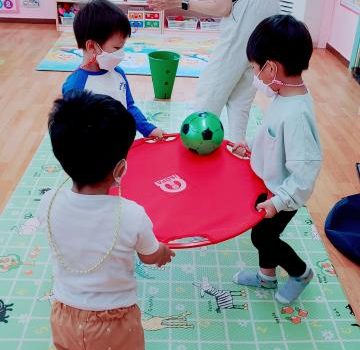From birth until age five, a child’s early years are critical to their mental security and emotional growth. Children lay the groundwork for their future emotional stability and mental health throughout this time. Caretakers, parents, and educators may establish a loving environment that promotes growth, resilience, and confidence by having a better understanding of the mental stability of children in this age group.
This article offers insights into the best approaches to promote a child’s emotional development while examining the major elements influencing a child’s mental stability throughout these formative years.
Why a Stable Environment Is Important:
For children to feel safe, their surroundings must be steady and predictable. A dependable schedule eases their worry and aids in their understanding of the outside world. Children feel safer when caregivers adopt consistent behaviors because they know what to expect. Building emotional security starts with a sense of stability.
Attachment’s Function in Mental Security:
Attachment is one of the most crucial elements in a child’s emotional development. Secure attachment develops when a kid and caregiver have a solid, dependable link. This friendship offers consolation and certainty, particularly in trying times. With a solid attachment, kids can explore their environment with the assurance that they always have a safe place to return.
Caregivers’ Emotional Availability:
Children depend on their caretakers’ emotional support. When parents or other caregivers are understanding and aware of their children’s needs, trust is developed. A child’s mental stability is substantially enhanced by caregivers who can recognize and react to their emotional signs. This emotional availability subsequently supports a child’s ability to regulate their emotions and develop emotional control skills.
Earlier Social Exchanges:
Positive early social relationships also have a significant impact on a child’s feeling of mental stability. Children start building bonds with others around them at a young age. They learn empathy, cooperation, and trust from these exchanges. These encounters, be they playing with other children at the daycare or spending time with family, help them become more socialized.
Stress’s Effect on Mental Security:
Stress can have a significant effect on a child’s mental stability even in their early years. Stress can interfere with a child’s sense of safety whether it originates from an environmental factor (like moving houses or changing caregivers) or an emotional one (like not paying enough attention). When kids are helped manage little amounts of stress, they can develop resilience and coping mechanisms by getting instruction and positive reinforcement.
The Influence of Play on Mental Growth:
Play is an essential aspect of young children’s lives since it fosters their cognitive and emotional growth. Children learn to solve problems, explore their surroundings, and push boundaries via play. Children can safely and effectively express their feelings and experiences via play. Playing together with caregivers improves the child’s sense of security and deepens the relationship between them.
Spoken Word and Spoken Word:
The development of language involves more than simply words; it also involves the feelings that underlie them. When caregivers talk to kids, listen to them, and accept their emotions, it helps kids grow emotionally. Effective communication helps kids feel understood, which reduces annoyance and enhances their self-expression. Better emotional security is a result of youngsters learning to control their emotions together with communication skills.
Developing Self-Esteem at a Young Age:
Long before they enter school, a child’s self-esteem starts to develop. Children feel capable and valued when they receive positive reinforcement, praise, and encouragement. Children gain a sense of accomplishment when they feel accomplished, even with little chores. Caregivers can support by praising efforts and minor triumphs, as this boosts self-esteem and confidence.
Physical Touch’s Significance for Emotional Security:
Hugs, cuddling, and handshakes are examples of physical contact that is crucial for promoting emotional security in early children. Touch offers consolation and security, particularly in tense or frightening situations. Positive physical contact helps children feel protected and loved by strengthening the link between caregivers and the younger generation. According to research, kids who experience loving touch are more likely to form safe attachments and experience emotional health.
Conclusion:
Caregivers must pay close attention to detail, be consistent in their approach, and emotionally invest in the mental security of children ages 0 to 5. The development of a stable environment, the promotion of safe attachment, and the encouragement of early social contact are all factors in a child’s emotional health. Play, interaction, and physical touch all contribute to their sense of security and worth. Caregivers may guarantee that children develop the emotional foundation necessary for success in life by emphasizing these essential characteristics.
